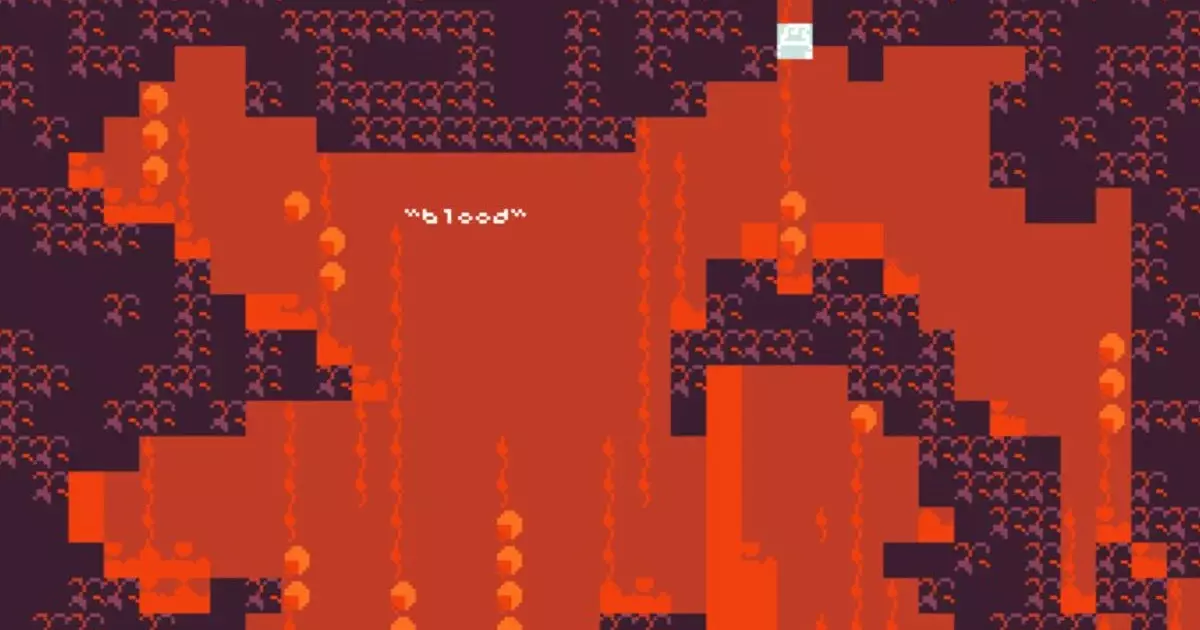In an industry often shackled by conventional norms and expectations, the announcement of Droqen’s new project, “The End Of Gameplay,” weaves an intriguing tapestry that suggests a radical departure from standard gaming practices. Known for the enigmatic offerings of “Starseed Pilgrim,” Droqen is evidently on a trajectory toward further exploration of abstraction in gaming. Describing the project as a poetic invitation to “kill gameplay,” the game’s premise challenges not only the players’ expectations but also the very foundations of what constitutes gameplay itself. This radical shift demands not only attention but a deeper analysis of the implications of such an approach.
What does it mean to “kill gameplay”? At a glance, the title evokes immediate curiosity and raises eyebrows, but it’s an invitation to peel back the layers of traditional gaming structures. Droqen boldly states that the game will resort to the elements “that nobody told me they cared about.” This encourages an introspective look at the gaming experience, compelling players to rethink their relationship with gameplay mechanics that have become ubiquitous in mainstream titles. By stepping away from the focus on win conditions, mechanics, and metrics of success, this project seems poised to evoke emotional and cerebral reflections rather than just scoring points or mastering levels.
Defying Expectations: An Anthology of Experiences
As “The End Of Gameplay” unfolds, it beckons to the artistry and nuance that indie developers frequently pour into their creations. The game is touted as an anthology, reminiscent of the trend where creators gather their shorts into cohesive packages. This trajectory aligns with the ongoing evolution within the indie scene, where the value of a game increasingly resembles a collection of experiences rather than a single journey defined by specific objectives. Droqen’s work invites players to journey through a fragmented yet meaningful exploration of concepts that lie outside the traditional gaming framework.
Recently, other indie luminaries such as Terry Cavanagh and Stephen “thecatamites” Gillmurphy have ventured into this territory where short, impactful experiences are curated into a single title. By following this path, Droqen not only continues in this lineage but positions himself as a provocateur willing to explore how players interact with each discrete experience, further emphasizing individual moments of discovery over cohesive narratives. This method could prove that fragmented gameplay can lead to a richer understanding of artistic intention and player engagement.
Introspection within Minimalism: A Space for Exploration
The trailer for “The End Of Gameplay” invites audiences into its pour-it-on ambiance—the minimalist aesthetics that Droqen is known for in previous works. This starkness can be unsettling yet illuminating, as it emphasizes the correlation between minimal environmental elements and heightened self-reflection. The contrasts between simplicity and profound experience are powerful, exuding a kind of understated beauty. Here, gameplay and exploration may intertwine into something beyond what most players have come to expect.
Droqen’s assertion that he initially wished to share the project “with as few people as possible” is a fascinating statement about the nature of art—often meant for personal tribute rather than mass consumption. The development of “The End Of Gameplay” is not merely an act of creation but a self-interrogation, questioning not only the nature of games but the role of the creator within the indie landscape. By declaring a wish for exclusivity, Droqen hints that the “killing” of gameplay might not merely signify a rejection but instead an invitation to perhaps infuse deeper meaning into the very act of play.
A Community Ready for Reflection
The gaming community has demonstrated an ongoing appetite for experimentation and exploration, drawing in indie projects that turn traditional structures on their head. As evidenced by Droqen’s own pronouncement regarding input from a select few, an air of exclusivity may enhance the allure of the game, creating a mystique around its reception. The dialogue surrounding “gameplay” is a complex conversation, often muddied by jargon and gaming lore that can obscure genuine player experience. Droqen’s audacious challenge to dismantle gameplay constructs may resonate profoundly with those ready for a reflective and immersive journey.
As we eagerly anticipate the “full flower moon” release in May, the world observes not only with curiosity but with intrigue. The potential for a distinctive experience that champions exploration, emotional depth, and abstract interpretations of gaming awaits us. The questions that will linger beyond “The End Of Gameplay” will inevitably push boundaries, urging both developers and players to rethink the fabric of what makes a game worthwhile in an ever-evolving digital landscape. Droqen’s venture highlights that sometimes, to gain new understanding, one must critically examine—and yes, even kill—the very gameplay they once cherished.

